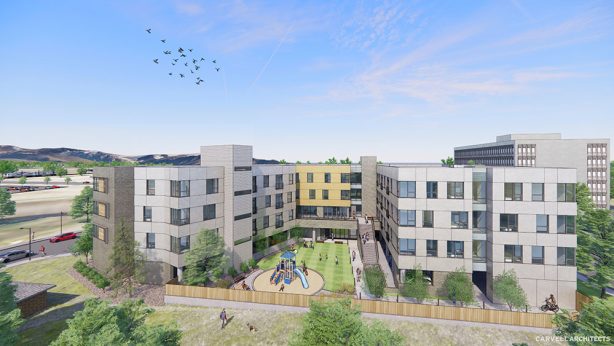ULC’s Former Board Member, Rick Pederson, Presents at Citywide Banks’ Economic Forecast
On Tuesday morning, members of Urban Land Conservancy (ULC), attended Citywide Banks’ Economic Forecast Report. The panelists for the event included Maria Garcia Berry of CRL Associates and Rick Pederson of Bow River Capital Partners. Pederson, who serves as a partner and advisory committee chair at Boy River, was also a member of ULC’s original founding board.
During the keynote, Pederson discussed a variety of economic trends that will influence the economy in 2019. These trends all centered around one topic: recession. In particular, when will the next economic downturn occur and how?
Some, especially those who believe the stock market and economy share the same fate, believe 2019 to be the year of the next recession. However, Pederson was not convinced that a recession will happen this year, despite $22 trillion in national debt and a volatile stock market. Because most of the national debt is low interest, the nation’s debt market is not experiencing high default rates (with the exception of student loans).
A major theme present during the keynote address was consumer confidence and consumer spending. “The consumer is very important to this recovery and will be very important to putting off the next recession,” Pederson explained. In 2018 retail spending was high among consumers, up about 2.7% from 2017. Pederson expects this trend to continue through 2019.
The U.S. Personal Savings rate is declining, signifying that consumers are spending outside their disposable income. If consumers are spending more in anticipation that incomes will increase, that is fine, but Pederson expressed worry that this increased spending is being done on credit, which is riskier and may contain the seeds of the next downturn. Interestingly, “the lead indicator of lead indicators,” Pederson explained is recreational vehicle sales. In the past few months RV sales have dropped. Light trucks (think the Chevy 1500 or Dodge Ram) can also be reflective of the strength of the economy. Lately, sales of these two auto-industries have been depressed and Pederson predicts this will be the “beginning of the end” of a strong consumer economy.
Oil prices are always a concern. The 1973 Oil Crisis, for example, had many short- and long-term effects on the global economy. Yet in 2019, oil prices remain stable amidst political instability in countries like Iran and Venezuela. The strength of U.S. natural gas, retrieved by fracking, has offset the shortage in oil imports.
Pederson also discussed economic growth in the United States. Denver is no longer a top 5 growth city, with the city currently hovering around 17th place. This could alleviate some of the pressure that Denver’s pace of growth has placed on rental apartment prices and traffic congestion. Colorado Springs, Fort Collins, and Greeley have all surpassed Denver in growth in the state of Colorado.
“You see people, money, resources, moving to places that cost less. It doesn’t always work, but it’s working this time,” Pederson explained. Currently, the number one spot for growth in the U.S. is Orlando, FL while Phoenix and Las Vegas have climbed to the top as well, due to their late entry into the post-recession recovery.
Finally, Pederson predicts the next recession will occur in late-2020 and it will look like the 2000-2001 recession, where the stock market experienced shock, but the consumer spent through the downturn. The recovery will likewise be mild compared to the recovery from the Great Recession. Pederson foresees a dip in corporate fixed spending and government spending to be key in the next downturn. He also predicts a corporate debt squeeze and a household debt squeeze will occur as interest rates start to rise. “So, the disappointing thing here is that I can’t point to one thing that will cause the next recession,” Pederson admits. Instead it is going to be a myriad of economic variables.
ULC wants to extend a thank you to Pederson for his analysis on the economy, and to Citywide Banks for hosting a thought provoking and informative discussion on economic trends and political issues that will have a real impact on Colorado businesses in the coming year.



